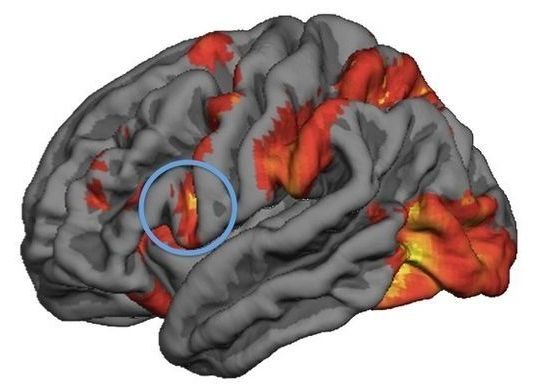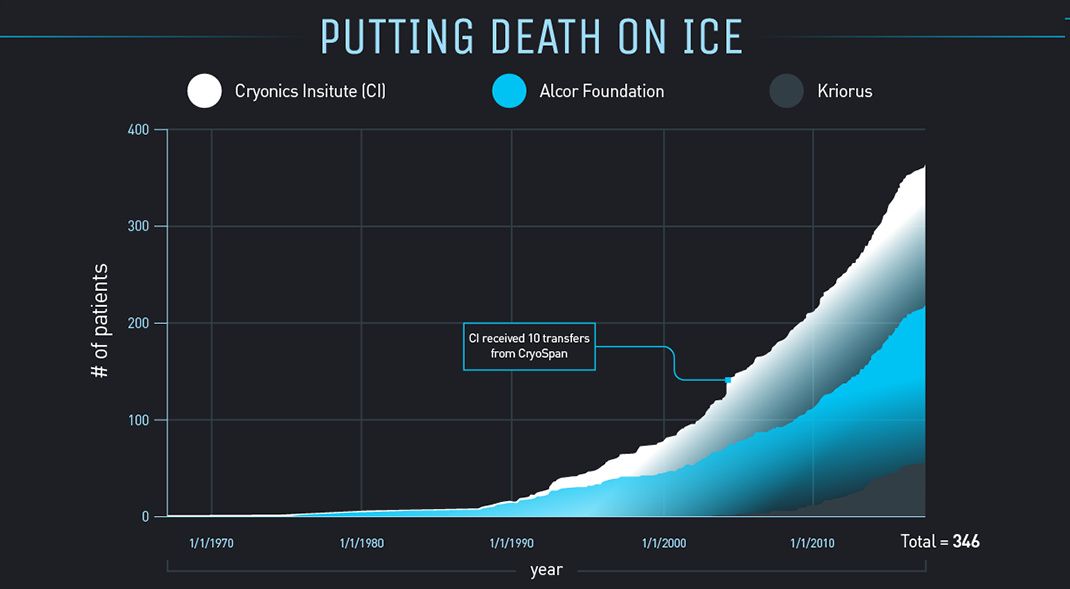The creation of monkey clones is a big breakthrough, but making a copy of an adult is still not possible and the ethics of cloning remain unchanged.



It is wartime. You and your fellow refugees are hiding from enemy soldiers, when a baby begins to cry. You cover her mouth to block the sound. If you remove your hand, her crying will draw the attention of the soldiers, who will kill everyone. If you smother the child, you’ll save yourself and the others.
If you were in that situation, which was dramatized in the final episode of the ’70s and ’80s TV series “M.A.S.H.,” what would you do?
The results of a new UCLA study suggest that scientists could make a good guess based on how the brain responds when people watch someone else experience pain. The study found that those responses predict whether people will be inclined to avoid causing harm to others when facing moral dilemmas.

[This article is drawn from Ch. 8: “Pedagogical Love: An Evolutionary Force” in Postformal Education: A Philosophy for Complex Futures.]
“There is nothing more important in this world than radical love” as Paolo Freire told Joe Kincheloe over dinner.
- Joe Kincheloe. Reading, Writing and Cognition. 2006.
And yet, we live in a world of high-stakes testing, league tables for primary schools as well as universities, funding cuts, teacher shortages, mass shootings in schools, and rising rates of depression and suicide among young people.
The most important value missing from education today is pedagogical love.
In “Pedagogical Love: An Evolutionary Force” (Ch. 8 of Postformal Education: A Philosophy for Complex Futures) I explain why love should be at centre-stage in education. I introduce contemporary educational approaches that support a caring pedagogy, and some experiences and examples from my own and others’ practice, ending with some personal reflections on the theme.
Why do we want to educate with and for love? We live in a cynical global world with a dominant culture that does not value care and empathy. We live under the blanket of a dominant worldview that promotes values that are clearly damaging to human and environmental wellbeing. In many ways our world, with its dominance of economic values over practically all other concerns, is a world of callous values. And recently we’ve embarked on a flight from truth.
In the search for truth, the only passion that must not be discarded is love. Truth [must] become the object of increasing love and care and devotion.
- Rudolf Steiner. Metamorphoses of the Soul, Vol. I. 1909.
What a contrast Steiner’s early 20th century statement is to the lack of a love for truth that abounds in fake news in our post-Truth world. Canadian holistic educator, John Miller points to the subjugation of words like love in contemporary educational literature in the following quote:
The word ‘love’ is rarely mentioned in educational circles. The word seems out of place in a world of outcomes, accountability, and standardised tests.
- John Miller. Education and the Soul. 2000.
British educational researcher, Maggie MacLure speaks about the obsession with quantitative language in education in the UK: “objectives, outcomes, standards, high-stakes testing, competition, performance and accountability.” She argues that the resistance to the complexity and diversity of qualitative research that is found in the evidence-based agendas of the audit culture is linked to “deep-seated fears and anxieties about language and desire to control it.” In this context it is not hard to imagine that words like love might create what MacLure calls ontological panic among the educational audit-police.
In spite of these challenges several educational theorists and practitioners emphasise the importance of love—and the role of the heart—in educational settings. If young people are to thrive in educational settings, new spaces need to be opened up for softer terms, such as love, nurture, respect, reverence, awe, wonder, wellbeing, vulnerability, care, tenderness, openness, trust.
Awe, wonder, reverence, and epiphany are drawn forth not by a quest for control, domination, or certainty, but by an appreciative and open-ended engagement with the questions.
- Tobin Hart. Teaching for Wisdom. 2001.
Arthur Zajonc has developed an educational and contemplative process that he calls an “epistemology of love.” Mexican holistic education philosopher, Ramon Gallegos Nava, refers to holistic education as a “pedagogy of universal love.” Other important contributions to bringing pedagogical love into education include Nel Noddings extensive writings on “an ethics of care”, Parker Palmer’s “heart of a teacher” and Tobin Hart’s deep empathy.”
The caring teacher strives first to establish and maintain caring relations, and these relations exhibit an integrity that provides a foundation for everything teacher and student do together.
- Nel Noddings. Caring in Education. 2005.

by Tracey Follows, Founder/Director of the Female Futures Bureau
Jennifer Gidley is a former President of the World Futures Studies Federation (2009−2017), a UNESCO and UN partner and global peak body for futures studies scholarship, she led a network of hundreds of world leading futures scholars and researchers from around the globe. An adjunct Professor at the Institute for Sustainable Futures, UTS in Sydney, futurist, author, psychologist and educator, Jennifer is a prolific author of dozens of academic papers, serves on several academic boards, and most recently authored Postformal Education: A Philosophy for Complex Futures (Springer, 2016) & The Future: A Very Short Introduction (Oxford, 2017).
Tracey: I spoke to Jennifer about her perspective on Female Futures.
One of the issues we discuss a lot at The Female Futures Bureau is why more female futurists don’t have a higher profile. And Jennifer agrees that it’s not because they aren’t around:
“I actually believe there are a large number of female futurists globally, and probably always have been. I would suggest that there are as many women involved in futures studies and foresight work as there are men…”
(Revised post)
Arab News, the official outlet of the Royal Saudis, proudly reported of Saudi Arabia being “the first country to grant a robot citizenship”. Below is a more sober account of this publicity stunt.
It is ironic for a country ruled by fundamentalist zealots to equate a machine to humans. What ‘citizenship’ means in an absolute monarchy which executes more of its human ‘citizens’ than ISIS and where women aren’t allowed to walk alone? Very little. That may be why the Saudi royals could afford pull such a stunt without considering the resulting legal and moral quagmire.
With artificial intelligence technology advancing rapidly, the world must consider how the law should apply to synthetic beings. Experts from the fields of AI, ethics, and government weigh in on the best path forward as we enter the age of self-aware robots.
Artificially intelligent (AI) robots and automated systems are already transforming society in a host of ways. Cars are creeping closer to Level 5 autonomy, factories are cutting costs by replacing human workers with robots, and AIs are even outperforming people in a number of traditionally white-collar professions.

Robert C. W. Ettinger’s seminal work, The Prospect Of Immortality, detailed many of the scientific, moral, and economic implications of cryogenically freezing humans for later reanimation. It was after that book was published in 1962 that the idea of freezing one’s body after death began to take hold.
One of the most pressing questions is, even if we’re able to revive a person who has been cryogenically preserved, will the person’s memories and personality remain intact? Ettinger posits that long-term memory is stored in the brain as a long-lasting structural modification. Basically, those memories will remain, even if the brain’s “power is turned off”.
This infographic delves into the mechanics and feasibility of cryonics – a process that thousands of people are betting will give them a second shot at life.
Recorded Oct 4th, 2017
Link to the interview, goo.gl/8rQ6YS
Link to Aubrey de Grey’s SENS Research Foundation — http://www.sens.org/

There’s no doubt that Dr. Ilia Stambler’s Longevity promotion: multidisciplinary perspective is a great book for the advocate and keen supporter of healthy life extension. Check out our review by Nicola Bagalà.
There’s no doubt that Dr. Ilia Stambler’s Longevity promotion: multidisciplinary perspective is a thorough book that all kinds of advocates of healthy longevity may find very useful. The book reads pretty much like a collection of academics papers, each dealing with a different aspect of the matter, including science, history, social and moral implications, legislation, and advocacy. Just like you would expect from an academic work, each section of this book is complete with exhaustive sources that will indubitably prove helpful should you wish to dig deeper into the topic being discussed.
The first section of the book focuses on advocacy, discussing typical concerns raised in the context of life extension, outreach material, and initiatives, and it offers suggestions for effective policies to promote aging and longevity research. The latter part of this section was one of the hardest for me to read since policies and legislation are not at all my strongest suit, but I do believe that professional lobbyists and advocates who have legal and regulatory backgrounds and wish to take action will find numerous ideas in it.
The longevity history section discusses the progression of longevity science during the last century. It was surprising to learn that quite a few well-established scientific disciplines of today, such as endocrinology, owe their existence to early efforts to create rejuvenation treatments. This section discusses other aspects as well, such as the holism vs reductionism controversy in the history of longevity research and the legacy of Elie Metchnikoff, a pioneering immunologist and microbiologist who can safely be regarded as the father of gerontology and made no mystery of his conviction that aging should be considered a disease and treated as such.
Full Interview ► https://goo.gl/PvUjjU
Michael B. Fossel, M.D., Ph.D. (born 1950, Greenwich, Connecticut) was a professor of clinical medicine at Michigan State University and is the author of several books on aging, who is best known for his views on telomerase therapy as a possible treatment for cellular senescence. Fossel has appeared on many major news programs to discuss aging and has appeared regularly on National Public Radio (NPR). He is also a respected lecturer, author, and the founder and former editor-in-chief of the Journal of Anti-Aging Medicine (now known as Rejuvenation Research).
Prior to earning his M.D. at Stanford Medical School, Fossel earned a joint B.A. (cum laude) and M.A. in psychology at Wesleyan University and a Ph.D. in neurobiology at Stanford University. He is also a graduate of Phillips Exeter Academy. Prior to graduating from medical school in 1981, he was awarded a National Science Foundation fellowship and taught at Stanford University.
In addition to his position at Michigan State University, Fossel has lectured at the National Institute for Health, the Smithsonian Institution, and at various other universities and institutes in various parts of the world. Fossel served on the board of directors for the American Aging Association and was their executive director.
Fossel has written numerous articles on aging and ethics for the Journal of the American Medical Association and In Vivo, and his first book, entitled Reversing Human Aging was published in 1996. The book garnered favorable reviews from mainstream newspapers as well as Scientific American and was published in six languages. A magisterial academic textbook on by Fossel entitled Cells, Aging, and Human Disease was published in 2004 by Oxford University Press.
Since his days as a teacher at Stanford University, Fossel has studied aging from a medical and scientific perspective with a particular emphasis on premature aging syndromes such as progeria, and since at least 1996 he has been a strong and vocal advocate of [telomerase therapy]] as a potential treatment of age-related diseases, disorders, and syndromes such as progeria, Alzheimer’s disease, atherosclerosis, osteoporosis, cancer, and other conditions. However, he is careful to qualify his advocacy of telomerase therapy as being a potential treatment for these conditions rather than a “cure for old age” and a panacea for age-related medical conditions, albeit a potential treatment that could radically extend the maximum human life span and reverse the aging process in most people. Specifically, Fossel sees the potential of telomerase therapy as being the single most effective point of intervention in a wide variety of age-related medical conditions. His new book, The Telomerase Revolution, (BenBella, 2015) gives a careful explanation of aging, age-related diseases, and the prospects for intervention, including upcoming human trials.